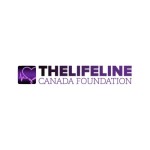Addiction is a widespread and often misunderstood condition. Though not classified as a mental illness, it is closely linked to mental health disorders like anxiety and depression. Individuals suffering from these conditions may turn to substances like drugs or alcohol as a form of self-medication, which can create a dangerous cycle, intensifying both their mental health struggles and addiction. Get Help Recovery Resources for Addiction in Canada offers essential support to break this cycle, providing resources that address both mental health and substance use disorders for effective recovery.
The Link Between Mental Health and Addiction
Addiction is not officially classified as a mental illness but is closely connected to mental health disorders such as depression, anxiety, PTSD, and others. Individuals suffering from these conditions often seek relief through substance use, aiming to temporarily numb their emotional pain. While substances might provide short-term relief, they tend to worsen the symptoms over time.
For example, someone dealing with anxiety may turn to alcohol to calm their nerves. Though it might provide temporary relief, alcohol is a depressant and can exacerbate anxiety symptoms, creating a cycle where the person consumes more to manage heightened anxiety. This dangerous pattern can lead to dependence or addiction.
Co-Occurring Disorders and the Cycle of Addiction
When a person has both a mental health disorder and substance use disorder, it’s called a co-occurring disorder. According to research, individuals with co-occurring disorders are more likely to suffer severe health consequences, experience difficulty in recovery, and relapse more often. For this reason, treating both the mental health disorder and the addiction simultaneously is critical to a successful recovery.
Without addressing the mental health aspect, individuals may continue to use substances to self-medicate, leading to a failure in long-term recovery. For example, treating only the addiction without addressing underlying depression may result in a return to substance use during a depressive episode. Effective recovery requires a dual diagnosis approach, treating both disorders.
The Role of Stress and Trauma
Stress and trauma are other major contributors to addiction. Trauma, such as childhood abuse or post-traumatic stress disorder (PTSD), significantly increases the risk of substance abuse. Traumatized individuals often turn to drugs or alcohol to cope with flashbacks, anxiety, or distressing memories.
Similarly, chronic stress can wear down a person’s mental resilience, leading to unhealthy coping mechanisms such as substance use. This is why stress management and trauma-informed care are crucial elements of addiction treatment. Understanding the root causes of addiction, such as stress or trauma, can help create effective treatment plans tailored to each individual’s unique needs.
Recovery Resources and Support
Addressing addiction effectively requires a comprehensive approach, integrating both medical and psychological treatment. The Life Line Canada Foundation offers a variety of recovery resources to help individuals navigate their journey toward sobriety while also addressing mental health issues.
1. Access to Free Counseling
The Life Line Canada Foundation provides access to free counseling services, where individuals can talk with trained professionals who specialize in both mental health and addiction. These services can be essential in helping individuals better understand their mental health issues and how they contribute to addiction.
2. Support Groups and Peer Programs
Peer support is an important part of recovery. Connecting with others who have gone through similar experiences can reduce feelings of isolation and provide motivation during difficult times. The Life Line Canada Foundation helps connect individuals to support groups that cater to both mental health and addiction recovery.
3. Crisis Intervention
For those experiencing severe mental health crises or addiction-related emergencies, immediate intervention is often needed. The Life Line Canada Foundation offers crisis intervention services that provide immediate support for those at risk of self-harm or overdose.
4. Specialized Programs for Veterans and First Responders
Many veterans and first responders suffer from PTSD, anxiety, and depression, which often leads to substance abuse. The Life Line Canada Foundation offers specialized programs for these groups, acknowledging the unique challenges they face in terms of mental health and addiction.
The Importance of Comprehensive Treatment
Recovery from addiction requires addressing the root causes, including any mental health disorders. A comprehensive approach that includes counseling, peer support, medical care, and sometimes medication is crucial for long-term recovery. For those struggling with both mental health and addiction, seeking professional help from programs like those offered by The Life Line Canada Foundation can make a significant difference.
Conclusion
Addiction and mental health are inseparable in many cases, and understanding the connection between the two is key to breaking the cycle. The Life Line Canada Foundation provides a range of recovery resources, from counseling and support groups to specialized programs, helping individuals get the help they need for both their addiction and their mental health. Recovery is possible, and with the right resources and support, individuals can reclaim control over their lives.
If you or someone you know is struggling with addiction and mental health issues, don’t hesitate to reach out to The Life Line Canada Foundation for support. Their resources can help individuals understand their struggles, develop healthier coping mechanisms, and work toward a more stable, fulfilling life.






Comments